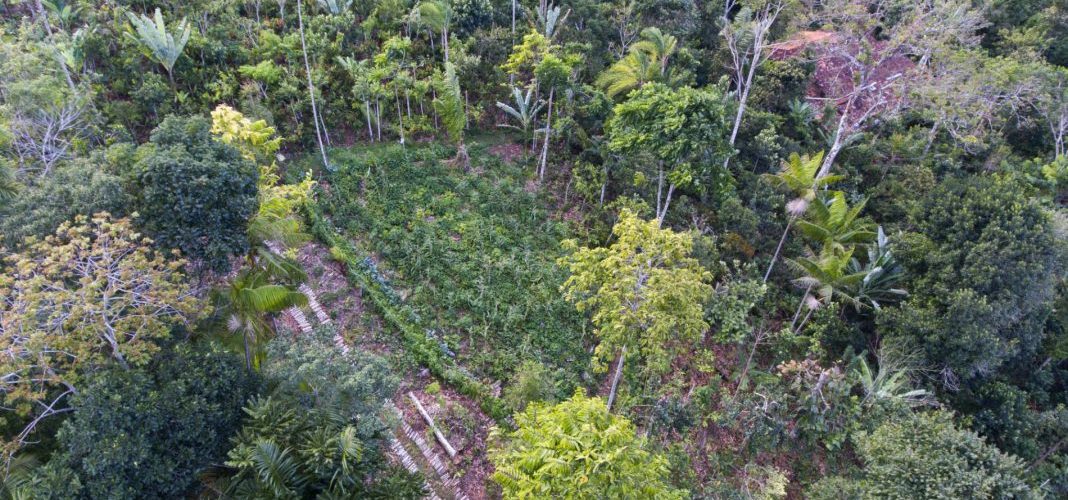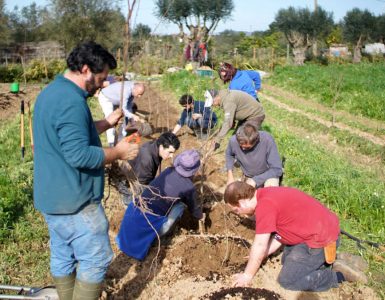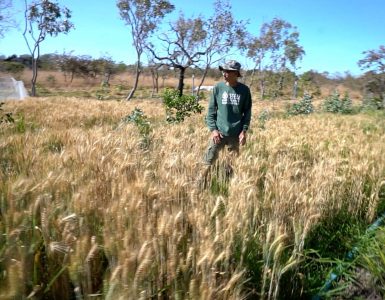Hello dear members. This week we would like to share with you an excerpt from an interview in which Ernst describes his hypothesis about the motives behind the tendency of our species to push forests away. After the end of the last glacial period, 12,000 years ago, forest ecosystems occupied what was once the steppe. Faced with this change, what did men do? How can we reconcile ourselves with the natural tendency of life on the planet today expressed by forest environments? How does our agriculture fit into this living wheel?
2 comments
You may also like
Multi-story tree lines
At the beginning of February, Ernst Götsch was in Portugal to implement the lines of trees in a complex system that includes apple trees, plums, blueberries, grapes, lemon, blackberry, ash, poplar, strawberries, and...
MORE THAN MULCH – the benefits of having constantly occupied soil
More than mulch, Syntropic Agriculture proposes that the soil always remains occupied by growing species. The advantages are numerous: optimization of photosynthesis, soil life chain stimulation, constant input of...
The best coffee of the year is from Syntropic Agriculture
Belo Horizonte_MG, 21 novembro de 2019\n\nSIC – Semana Internacional do Cafe\n\nImagem: Gustavo Baxter / NITRO Among 500 coffee samples from 20 Brazilian regions, the coffee from producer Wilians Valério...







Excelente entrevista do nosso querido Ernst, parabéns. Queremos cada vez mais, filma tudo Felipe!!
Pois é… parece tão lógico, que fica difícil acreditar que a grande maioria dos agricultores pensem diferente!
Realmente não há maneira mais ineficiente de se buscar resultados diferentes, do que realizando os mesmos processos!
O que o Ernst, a Primavezi e vários outros ativistas da agricultura de processos nos mostram é que se pode obter até mais produtividade por área plantada, com menor custo e com melhor qualidade (leia-se Nirvana…), caso se respeite a natureza e se utilize as suas dádivas em nosso favor.
Parabéns pelo trabalho! Mantenha a proa que o horizonte está límpido!!